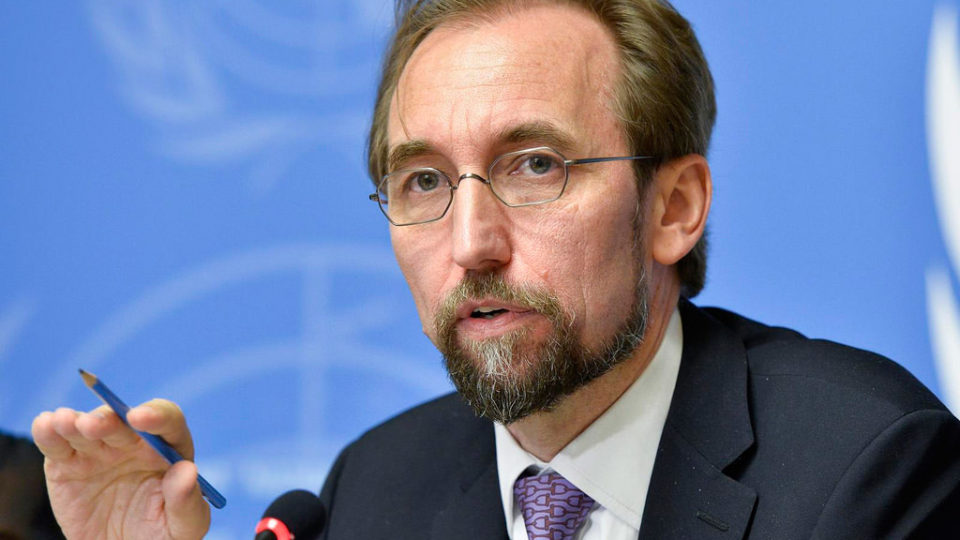The man who previously declared that Myanmar’s military operations in northern Rakhine State were a “textbook case of ethnic cleansing” has struck at the country again, this time saying the operations have included “elements of genocide.”
In the wake of the Myanmar military’s operations in the western province over the last three months have come “concordant reports of acts of appalling barbarity committed against the Rohingya, including deliberately burning people to death inside their homes; murders of children and adults; indiscriminate shooting of fleeing civilians; widespread rapes of women and girls; and the burning and destruction of houses, schools, markets and mosques,” said UN High Commissioner for Human Rights Zeid Ra‘ad al-Hussein today at a special session of the UN Human Rights Council in Geneva called by Bangladesh.
“Can anyone – can anyone – rule out that elements of genocide may be present?” he asked the 47-member body.
The UN’s convention on genocide defines the crime as acts intended to destroy a national, ethnic, racial, or religious group in whole or in part and requires all countries to prevent and punish genocide.
The commissioner also pointed out that Rohingya refugees continue to flee over the border into Bangladesh, despite a recent repatriation agreement signed by Myanmar and Bangladesh and brokered by China.
More than 625,000 Rohingya refugees have fled to camps in Bangladesh since August 25. Zeid told the commission today that none should be repatriated until independent actors are able to monitor the process on the ground. Foreign diplomats have previously raised concerns that Rohingya refugees will be placed in “camp-like villages” once they return to Myanmar.
Htin Lynn, Myanmar’s ambassador to the UN in Geneva, told the body that the repatriation would begin in around two months and that “there will be no camps.”
Zeid insisted that the UN General Assembly create a mechanism to “assist individual criminal investigations of those responsible” for the crimes against the Rohingya, adding that accountability for Myanmar troops who violate the human rights of Rohingya are “extremely rare.”
Myanmar has blocked a UN-appointed fact-finding mission from entering the country to investigate the claims of abuses, but in interviews in Bangladesh, refugees have told investigators about acts of extreme physical and sexual violence committed by Myanmar troops.
Pramila Patten, the UN’s special representative on Sexual Violence in Conflict, said that some of these acts were committed against the Rohingya “solely on the basis of their ethnicity and religion.”
Htin Lynn responded: “People will say what they want to believe, and sometimes they will say what they are told to say.”




